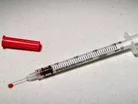Blood test successfully diagnoses depression in teens

Researchers from Northwestern University in America have developed a blood test which is able to diagnose depression in teenagers.
The test has also shown success in detecting anxiety disorders and works by identifying genetic biomarkers in the blood.
It is the first test of its kind able to successfully diagnose the different types of teenage depression; major depression and depression that is combined with anxiety.
There are now hopes the development will lead to tailored treatments and care packages for the different subtypes of the illness.
To read the latest edition of Healthcare Global, click here
- Morning after pill to be delivered to women by courier service
- ‘Chinplants’ are newest cosmetic surgery trend in US
- World’s biggest-ever Parkinson’s disease study launched
Taking the US as an example, approximately 10 to 20 percent of adolescents suffer from some type of depression and until now, it has been notoriously difficult to detect.
Without a test that offers a definitive diagnosis, it is down to the patient to relay their symptoms to their doctor, who then needs interpret them correctly.
Teenage mood swings also make both depression and anxiety difficult to identify.
If left untreated, the condition can often lead to problems later in life, such as substance abuse, social maladjustment and even suicide.
To test the innovative blood test, the researchers took blood samples from 28 teenagers, 14 of whom had depression, the other 14 did not.
In total 11 biomarkers accurately indicated depression, while 18 successfully diagnosed the combination of depression and anxiety.
Commenting on the findings, the study’s lead investigator, Professor Eva Redei, said: “This is the first significant step for us to understand which treatment will be most effective for an individual patient.
“Without an objective diagnosis, it's very difficult to make that assessment.
“The early diagnosis and specific classification of early major depression could lead to a larger repertoire of more effective treatments and enhanced individualised care.”
The results of the study have now been published in the Translational Psychiatry journal.
The Healthcare Global magazine is now available on the iPad. Click here to download it.
